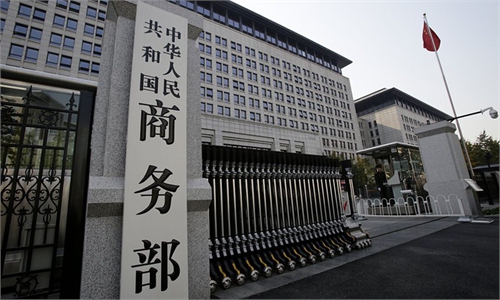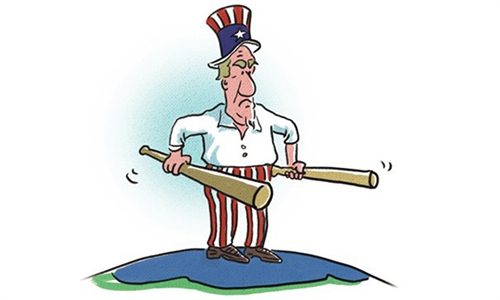US’ intensified crackdown on China only slows down own industrial development: experts

China US
The US' recent suppressive measures targeting Chinese enterprises and industry players in various sectors only show that the US cannot compete with China under conventional trade rules, so it is implementing trade restrictions by abusing the concept of national security which will only prevent the US advancing its industrial development, Chinese experts said on Friday.
China urges the US not to take the wrong approach and says it will take the necessary measures as appropriate to safeguard the legitimate rights and interests of Chinese enterprises, Chinese Ministry of Commerce spokesperson He Yadong said on Thursday, responding to the US' reported action to blacklist a number of Chinese semiconductor firms linked to Huawei.
In addition to suppressing Huawei and its related chip network, the US has recently intensified its claims and suppressions that target China-made cranes and new-energy vehicles. This shows that it can no longer compete with China under conventional trade rules, as it abuses the concept of national security and implements trade restrictions, He Weiwen, a senior fellow from the Center for China and Globalization, told the Global Times on Friday.
The US is actually twisting what are actually opportunities in China as risks through excuses such as security concerns, Hu Qimu, a deputy secretary-general of the digital-real economies integration Forum 50, told the Global Times on Friday, adding that the US cooperating with China in industrial and supply chains will actually be conducive for the US to develop its supply chain with lower costs and higher efficiency in resource allocation.
In the latest move restricting US investment in China, four bipartisan bills designed to address issues of fairness and risk when Americans invest in Chinese corporations were introduced by Victoria Spartz, an Indiana Republican, and Brad Sherman, a California Democrat on March 20. "The introduction of four bills [is] designed to address issues of fairness and risk when Americans invest in Chinese corporations," Sherman said in a press released on his official website.
US mutual funds would not be able to invest in some products that track Chinese stock indexes under one of the bills. This measure is among the most aggressive salvos yet by American lawmakers targeting investments in China, Bloomberg reported on Friday, adding that the measures still face hurdles to becoming law.
A different measure would require US publicly traded companies to quantify and disclose to investors the role that China plays in their supply chains, while another would remove a US capital gains tax break for investments in companies based in China, Belarus, Iran, North Korea and Russia.
The bills reflect that the US' deeply rooted hostility toward China in its political ecology, especially the common hostility in Congress, will further affect China-US relations, He noted.
The US still aims to decouple its industrial and supply chain from China, while preventing investment flows into China amid the country's stepped-up efforts to attract foreign investment, Hu said.



